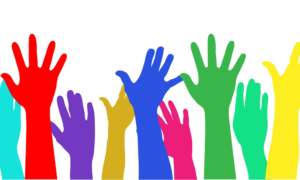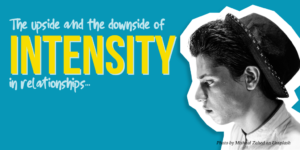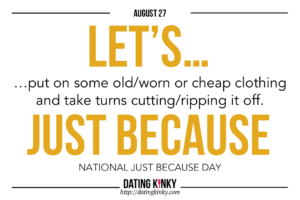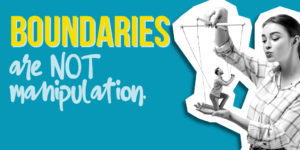As so often happens, ethics have been coming up in many of my conversations of the past few weeks. So much so that I feel a need to write on the topic.
There is so much I can say, but let me start with this:
Ethics are not universal.
Ethics are the set of moral principles that guide a person’s behavior. These morals are shaped by social norms, cultural practices, and religious influences. Ethics reflect beliefs about what is right, what is wrong, what is just, what is unjust, what is good, and what is bad in terms of human behavior. They serve as a compass to direct how people should behave toward each other, understand and fulfill their obligations to society, and live their lives. (1)
Bold is mine.
So, on OkCupid, there is a question that asks: Is morality universal? Morality is defined as ‘principles concerning the distinction between right and wrong or good and bad behavior,’ and is the basis for ethics.
Your culture influences your morality. Your family influences your morality (for good or ill). Your environment influences your morality (what is appropriate in business is not necessarily appropriate in a social situation, for example). Your religion influences your morality. Your experiences and peer groups also influence your morality, either to strengthen or weaken it.
Therefore, I could argue that since no two people can have exactly the same culture, family, environment, religion, experiences and peer groups, no two people will have exactly the same morality and ethics.
And that’s OK. In many cases, it may not make a difference at all.
Of course, in some cases, the smallest deviation might lead us to war, but that’s another issue, entirely… grins
Ethics do not equal action.
Simply put, believing something is right or wrong does not inherently mean that I (or you) will act upon that.
It is easy to believe that something should be done (because it is right) and that I am not the one to do it (because I have greater priorities, a lack of skillset, or just plain apathy).
For example, I believe that people should be putting more efforts into protecting pangolins in Asia, however, the most I do is share photos and articles on Facebook. I’m just not ready to take up that cause any deeper, because, well, I have other priorities.
Ethics do inform action, though.
So, I base the majority of my actions on what I believe is right. Sometimes, it is a battle between what is right FOR ME and what is just plain right.
Those are not easy.
A person’s actions will tell you a lot about their ethics. Even small actions (making a facebook post) can mean something. Sometimes as much as a big action (flying to Asia for a while to rescue pangolins—which I can’t, because they really don’t allow people without training and such to do, but I totes could get the training,a nd the shots and whatever, but then I’d totally be leaving other things that are right for me, like being a companion to my Pet and a friend to those who lean on me, and so on and so on) tells you more about what a person feels is right for THEM (running away from it all), rather than what is right.
However, rather than taking one action and trying to extrapolate a person from there (Jim and Tammy Faye, anyone?), I suggest looking their actions as a whole, and over time.
That means…
…taking the time to get to know them.
Shocking! No, actually what’s shocking is how often this does not happen.
How assumptions about ethics can harm you:
It’s easy! Take me, for example. You don’t know me.
Or, well, maybe you do. Many do that read my writings regularly, but many do not. Or at least not well.
So, you are reading this, and you think, “Damn, she’s writing about ethics. And hey, I pretty much agree with her. She must be ethical.”
Written out like that, it seems a bit naive, yes?
It is.
And yet, it happens. People “know” me through my writings, through my teachings. Some even through talking with me a bit here and there.
VERY VERY few know me through any kind of play or intimacy.
And yet, people I have never met before introduce themselves and ask for a scene/play/intimacy because a friend who has been to a class says I’m amazing. Their friend BARELY knows me!
I’m not telling you I’m not trustworthy. I do everything in my power to be so.
But you don’t KNOW this unless you know me. And you don’t know me unless you’ve spent real time around me, talking to me, watching how I interact with others, learning my actions and ethics.
Oh! What about when people make mistakes? ONE mistake can dog a person forever, when it is simply one action taken out of the context of many.
That’s just as not-OK as assuming someone is safe because of unrelated factors.
Because knowing a bit about someone, knowing their public face or the rumors about them, is not the same as knowing how they will react in various situations.
Or what their base code of ethics is.
What are YOUR thoughts on ethics? Do you have examples you can share?
I have more, but this is long enough, so this will be Part I. smiles
—
(1) Source: Boundless. “Defining Ethics.” Boundless Management. Boundless, 21 Jul. 2015. Retrieved 11 Nov. 2015 from https://www.boundless.com/management/textbooks/boundless-management-textbook/ethics-in-business-13/ethics-an-overview-95/defining-ethics-446-8310/







